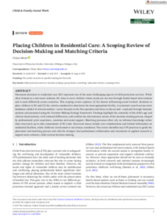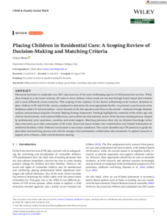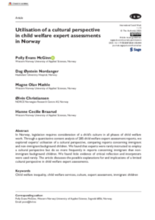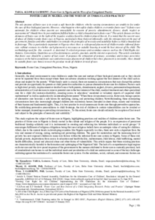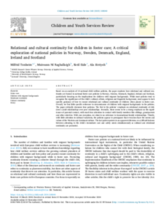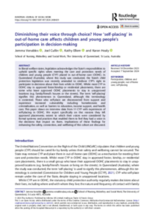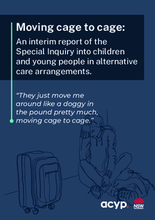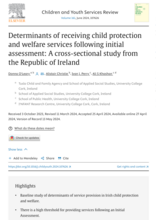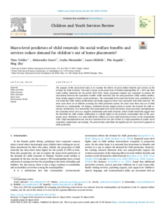Displaying 1 - 10 of 281
This paper presents a rights-based framework for assessing when care orders are justified in child protection, integrating human rights standards, statutory criteria, and international jurisprudence around the principles of necessity, proportionality, and the child’s best interests. It offers practical guidance to improve consistency and accountability in decision-making, supporting evidence-based reform while reducing arbitrary or disproportionate child removals and prioritizing family preservation where possible.
This article reviews research on how social workers decide to place children in residential care and how facilities are selected, highlighting the complexity and discretion involved in these decisions. It underscores the influence of factors such as children’s age, clinical needs, professional judgment, and limited information on facilities, while calling for more structured, child-centred approaches and stronger collaboration across services.
This scoping review examines how social workers decide to place children in residential care and how facilities are selected, drawing on 10 global studies analyzed through the Decision-Making Ecology framework. Findings reveal that decisions are often shaped by a child’s age, clinical needs, and professional discretion, but frequently lack structured assessments, consistent child involvement, and reliable information—pointing to the need for stronger collaboration and research to support more child-centred practices.
In Norway, legislation requires consideration of a child’s culture in all phases of child welfare work. Through a quantitative content analysis of 285 child welfare expert assessment reports, the authors explored experts’ utilisation of a cultural perspective, comparing reports concerning immigrant and non-immigrant background children.
This article examines the challenges of foster care in Nigeria, highlighting risks of abuse—especially in informal placements—and questioning whether foster care is always necessary or suitable. It concludes that foster care should be a last resort, urging preventive measures and, where unavoidable, the use of safe and appropriate foster homes that prioritize the best interests of the child.
An analysis of 14 national foster care policies across six European countries found that while most acknowledge children’s cultural, ethnic, religious, and linguistic backgrounds, they provide little concrete guidance on ensuring relational and cultural continuity—particularly for children with migrant backgrounds. The study highlights four policy patterns, including prioritizing adult over peer relationships, emphasizing parental contact over extended family or transnational ties, assuming Western cultural norms, and struggling to balance immediate care needs with maintaining cultural and relational connections.
This paper draws on the experiences of children and young people (CYP) who have self-placed in out-of-home care (OOHC) in Queensland (Australia) and the impact of that choice on their participation in decision-making.
This interim report based in Australia focuses on hearing the lived experiences of children and young people in alternative care arrangements and lifts up the voices of those who have participated in private hearings as part of this Special Inquiry to date.
This study examines the factors which drive the decision to provide child protection and welfare services in Ireland using social work case files and multivariable analysis.
The purpose of this macro-level study is to examine the effects of social welfare benefits and services on the demand for child removals. The study is based on the panel data of Finnish municipalities and their social welfare indicators for the period 2010–2021.


